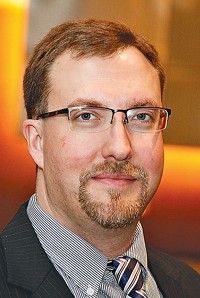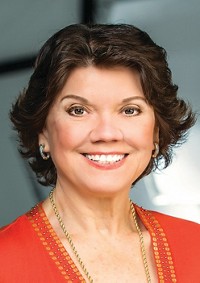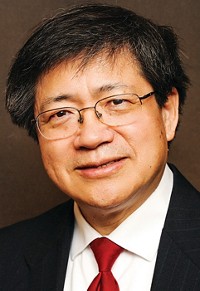Advertisement
Grab your lab coat. Let's get started
Welcome!
Welcome!
Create an account below to get 6 C&EN articles per month, receive newsletters and more - all free.
It seems this is your first time logging in online. Please enter the following information to continue.
As an ACS member you automatically get access to this site. All we need is few more details to create your reading experience.
Not you? Sign in with a different account.
Not you? Sign in with a different account.
ERROR 1
ERROR 1
ERROR 2
ERROR 2
ERROR 2
ERROR 2
ERROR 2
Password and Confirm password must match.
If you have an ACS member number, please enter it here so we can link this account to your membership. (optional)
ERROR 2
ACS values your privacy. By submitting your information, you are gaining access to C&EN and subscribing to our weekly newsletter. We use the information you provide to make your reading experience better, and we will never sell your data to third party members.
Environment
ACS, Serbian Chemical Society To Forge Ties
Cooperative agreement reached after visit to the Balkan region
by Noah U. Shussett
October 22, 2007
| A version of this story appeared in
Volume 85, Issue 43

Attendance of two members of the ACS Division of Environmental Chemistry (ENVR) at a conference in the Balkan region of Europe has resulted in a formal agreement between the ACS division and the Chemical Society of Serbia's Environmental Division to cooperate and collaborate on environmental issues and to host student exchanges. ENVR Chair Jürgen Exner hopes the agreement will become a template for other alliances as the division expands its outreach. Exner is an environmental consultant with JHE Technology Systems Inc.
The need is great and the timing seems right for such an agreement. Scientists in the Balkans have long seen their opportunities for scientific exchanges, collaborations, and research stymied by forces both inside and outside of the region. These have included various conflicts and disagreements among governments dating back to the first Balkan War in the early 1900s, through the Balkan campaigns of both World Wars that ravaged the region and sparked separate internal conflicts, and up to the Yugoslav Wars that saw the establishment of independent states in the early 1990s.
These days, the region is relatively calm, and scientists are reaching out to each other in hopes of kindling opportunities to work together. Last June, Exner and George P. Cobb, environmental toxicology professor at the Institute of Environmental & Human Health at Texas Tech University, attended the 1st Symposium of Chemistry & Environment in Miloċer-Budva, Montenegro. The meeting was attended by members of the Chemical Societies of Montenegro, Serbia, and Romania; the Bulgarian and Pancyprian Unions of Chemists; the Society of Chemists & Technologists of Macedonia; the Society of Albanian Chemists; and the Association of Greek Chemists.
"This was a reciprocal trip," Cobb says. A Serbian delegation attended this year's Pittcon, the large annual analytical chemistry exposition and conference held in the U.S., Cobb explains, "and we aimed to continue our collaboration via the Balkan trip." The division's goals for the exchange were to increase the connections among chemists in the Balkan region and North American chemists through various working partnerships, to make North American chemists available for speaking and training engagements, and to discuss providing exchange opportunities for students.
Both parties will benefit from the agreement. For example, Exner says, "the Serbian Chemical Society is interested in increasing its knowledge of environmental control and management, while ACS is interested in expanding its member and knowledge base." Cobb is enthusiastic about learning how scientists with limited infrastructure approach research problems. He is confident that North American scientists can learn a great deal from their Serbian counterparts.
The agreement calls for "coordination of scientific investigations," which Exner foresees as requiring heavy collaboration. For example, tracing the global migration of persistent organic pollutants is an area of great interest to both societies and would require samples from all corners of the map as well as the U.S. and Serbia, he says. He also believes that this cooperative research will provide valuable information to other organizations. "The United Nations International Development Organization is helping Slovakia clean up polychlorinated biphenyls from leaking transformers and is looking into doing the same kinds of things for African and Asian nations. What we can learn from our work with Serbia could be beneficial to that project," he says.
A student exchange-another aspect of the agreement-could have a positive impact on tomorrow's chemists, Cobb says. He believes the exchange could be facilitated through third parties and notes that the North Atlantic Treaty Organization has programs for interactions between the U.S. and "partner countries" and that the Eurpoean Union is another possible funder of the project. He has yet to approach either organization to discuss the possibilities.
Organization of joint seminars and conferences is also planned. Exner thinks that a biannual conference might be combined with ACS meetings. ENVR "is trying to do something useful for the world. Using this as a template for future work will help our members both domestic and abroad by giving them exposure to needs and problems in other countries," he says.





Join the conversation
Contact the reporter
Submit a Letter to the Editor for publication
Engage with us on Twitter